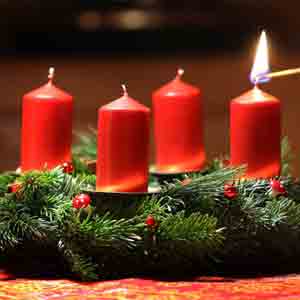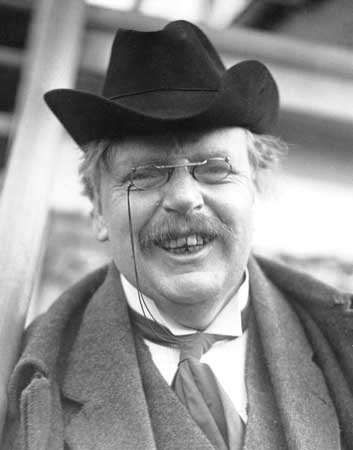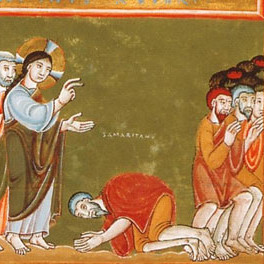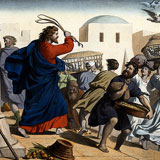Advent is, lamentably, banished. On this First Sunday of Advent, Christmas trees and decorations are already well established in public places, and Christmas carols are played everywhere. Soon the Christmas parties will begin in earnest.
On Boxing Day, however, trees and decorations are dismantled; carols are retired, and the pleasant pace of summer vacation sets in. By then, many people are exhausted by the frantic Christmas rush — shopping, cleaning, cooking, feasting — and they’re glad to see an end to it.
But it isn’t meant to be this way. There are twelve days of Christmas after all, and it doesn’t end on Christmas Day; that’s when it starts! The Australian summer has something to do with this annual pattern, but I think it’s mostly due to the loss of Advent.
In theory, Advent resembles a “little Lent;” it’s a time of liturgical violet, extra prayer, and penance. In practice, Advent is a casualty of the commercialisation of Christmas and the end-of-year wind down. It’s not practical to fast in the midst of parties, and it’s not feasible to increase devotions when there’s a house to clean and gifts to wrap.
Nonetheless, an intentionally lived Advent is precisely what we need. It’s the perfect antidote to the frenetic demands of Christmas, and it enables us to spiritually prepare for the coming of Christ. Two thousand years ago, there was no room for him at the inn. This Christmas, however, hopefully there is room for him in our homes, and in our hearts.
The key to living Advent resides, I think, in today’s Responsorial Psalm:
Lord, make us turn to you; let us see your face and we shall be saved.
This, I propose, makes an excellent Advent motto. I’ll certainly be adopting it myself. With the help of my guardian angel, whom I’ve asked to prompt my memory, I intend to pray this aspiration repeatedly during Advent. Lord, make us turn to you; let us see your face and we shall be saved.
The desire to see God’s face is, I think, the hallmark of the contemplative spirit. Our Lord alludes to it in his great Sermon on the Mount:
Blessed are the pure of heart, for they shall see God.
To be “pure in heart,” I think, means to love whole-heartedly. To love perfectly; unconditionally. Contemplative souls — which include every saint whose lives I’ve read, and more besides — are so madly in love with God, that they see God everywhere, in every creature. They see God in their neighbour — even those neighbours whom they dislike. And they see God in other creatures too: in the sun; in the moon; in the weather; in everyday circumstances. They recognise God even in those things that go wrong. Blessed indeed are the pure of heart.
I think the spirit of Advent is the pursuit of the contemplative spirit. It means imitating Mary when everything compels us to imitate Martha. It means we foster peace and serenity, not only in ourselves, but in the people around us. What a great gift to give at Christmas!
Lord, make us turn to you; let us see your face and we shall be saved. That’s the aspiration; the goal. What are the means? Here’s one I’m using. In recent decades, psychologists have conducted studies which confirm what spiritual masters have long insisted: people who are habitually thankful are also happy and calm. You and I should number among the thankful, because we are a Eucharistic people. Eucharistia — εὐχαριστία — literally means “thanksgiving,” or gratitude.
Fortunately, it’s not a difficult thing to become habitually thankful. It can be accomplished by a daily task which is easily incorporated into the Advent discipline. This works better if it’s written down: another example of the importance of ‘sacramentality’ in the spiritual life, when we “incarnate” the spiritual by bringing it into the material present. Every day, write down three items for which you’re grateful.
“Thank you, God, for the gift of …” Write that every day, and you’re a step closer to seeing the face of God. And, additional bonus: you’ll still have a good grasp of your sanity by the end of Christmas Day!






Nice post. Just need to expand on the 6th beatitude by 100-fold for the Legion retreat next year! I like also the verse from St James: “come close to God and He will come close to you.”
Thank you Father, for your writings, I find them very inspiring